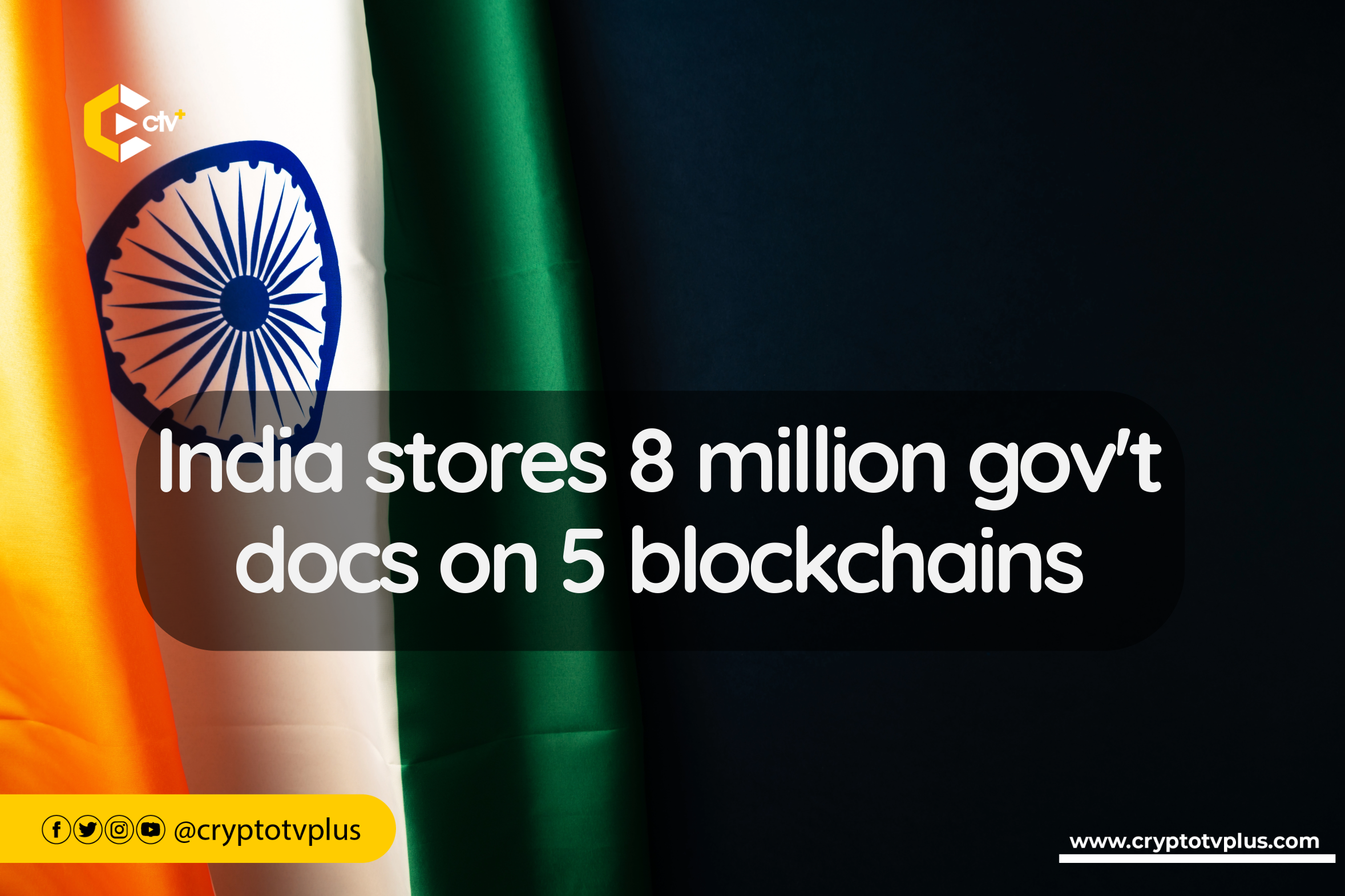News
India stores 8M gov’t docs on 5 blockchains

India has stored over eight million government documents across five different blockchains.
The Indian government primarily utilized Hyperledger Fabric, Hyperledger Sawtooth, and Ethereum to develop its blockchain-based government products.
The National Informatics Centre (NIC), a government agency in India under the purview of the Ministry of Electronics and Information Technology, owned and operated the five blockchains hosting over eight million government-issued, verifiable documents.
Under the Ministry of Electronics and Information Technology, the NIC launched a website to showcase its various blockchain initiatives.
According to the website, the five blockchains hosted a total of 7.93 million documents, including those related to education, property, the judiciary, and drug logistics.
India’s innovation in blockchain technology encompasses various products like Certificate Chain, Document Chain, Drug Logistics Chain, Judiciary Chain, and Property Chain.
This initiative involves a collaborative effort among six states and three federal agencies, including the Central Board of Secondary Education, the Ministry of Consumer Affairs, and the Ministry of Justice, which have contributed documents to these blockchain platforms
Through the adoption of blockchain technology, these departments offer verification services for property ownership, birth and death certificates, and manage supply chains related to medicines and educational documents.
Additionally, India has created proof-of-concept blockchains for applications in land records, blood banks, goods and services tax, and a public distribution system.
In 2023, Hindustan Petroleum Corporation, one of India’s largest oil and gas companies, partnered with blockchain software firm Zupple Labs to integrate blockchain technology into its purchase order system.
India employed blockchain technology to address its persistent challenges with document forgery. The Indian government issued secure and unchangeable digital certificates through blockchain technology to deter forgery and unauthorized use of documents.
Despite maintaining a cautious stance on legalizing cryptocurrencies, the Indian government showed overall support for blockchain technology. Numerous state and local governments in India actively contributed to the country’s adoption of blockchain technology.
Read also: Ethereum Foundation alongside zkSync allocates $900K for ZK Layer 2 development

























Pingback: Regulate crypto, don’t ban it, Indian Supreme Court says